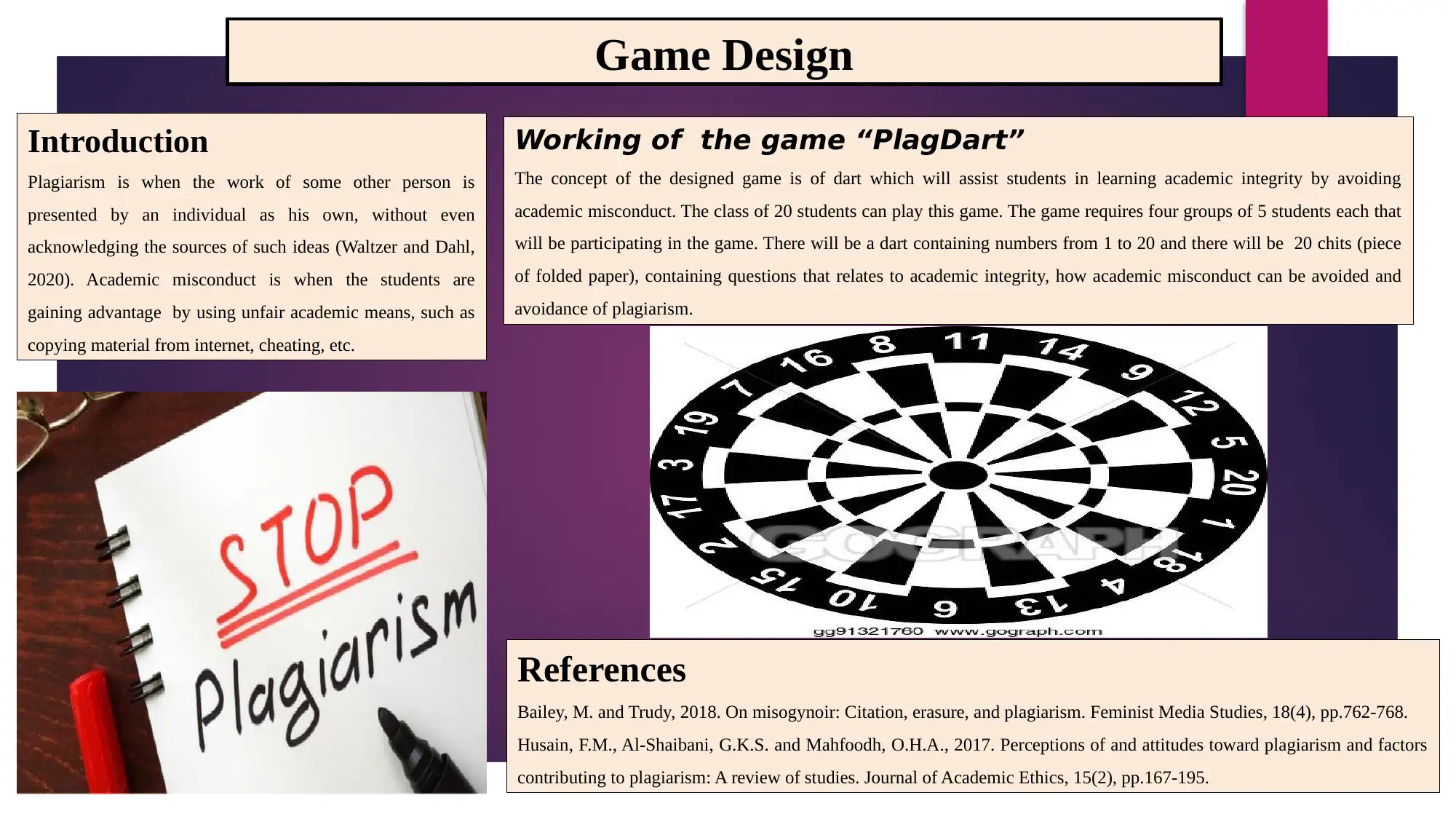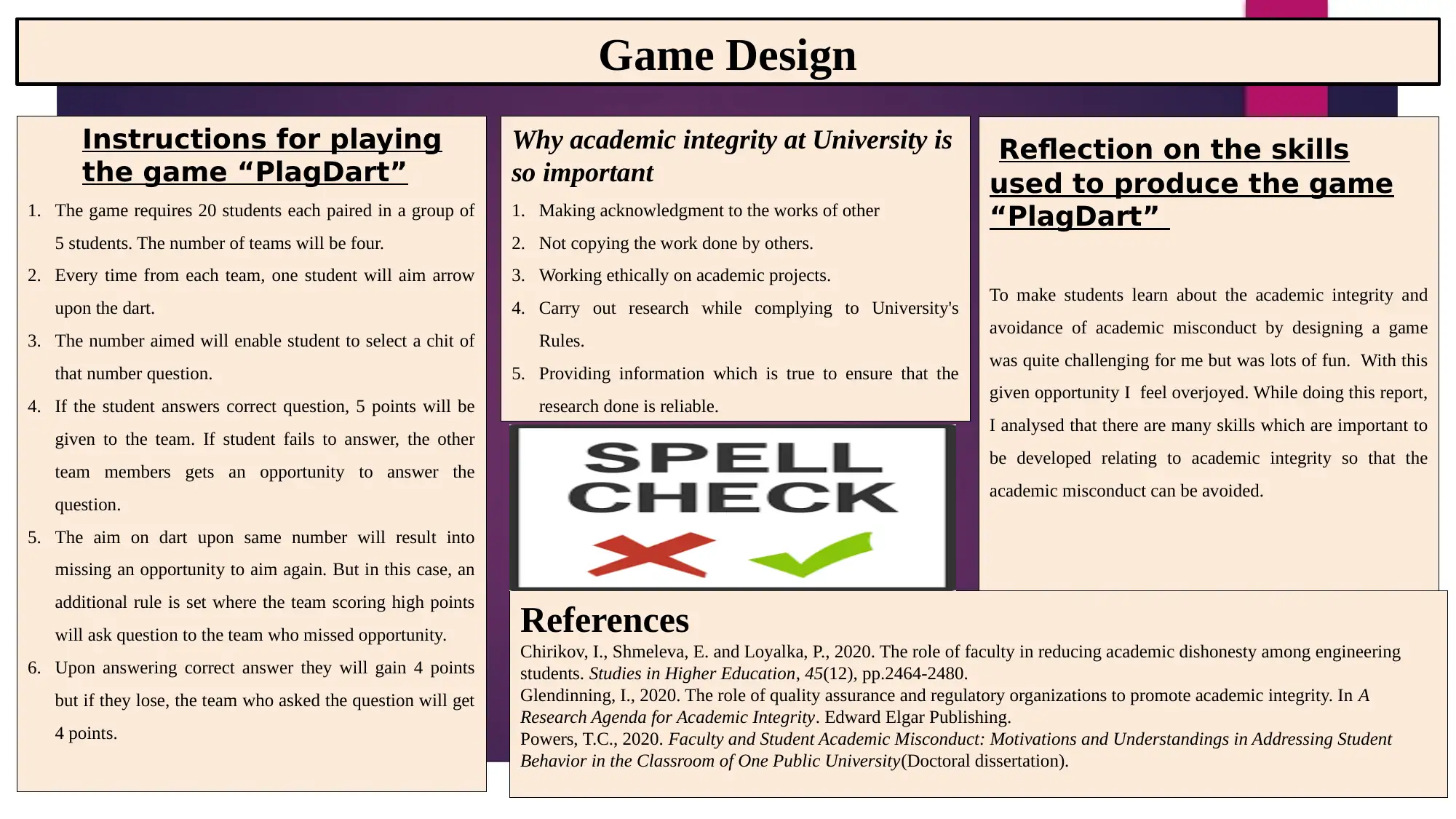Game Design for Avoiding Plagiarism: BMP3003 PlagDart Project
VerifiedAdded on 2022/12/19
|2
|654
|91
Project
AI Summary
The assignment details the design of the game 'PlagDart' for students to learn about academic integrity and avoid plagiarism. The game involves teams answering questions on academic misconduct and integrity, with instructions, explanations of academic integrity's importance, and reflections on the skills used in the game's creation. The project includes references to support the game's concept and design, highlighting the importance of ethical academic practices. The student designed a game to teach academic integrity, covering game instructions, the importance of integrity, and reflection on skills used. The project emphasizes the importance of academic integrity and provides a practical approach to learning through game design. The design includes a poster presentation with game instructions, an explanation of academic integrity's importance, and reflections on the skills used. The document also lists references for the sources used.
1 out of 2







![[object Object]](/_next/static/media/star-bottom.7253800d.svg)